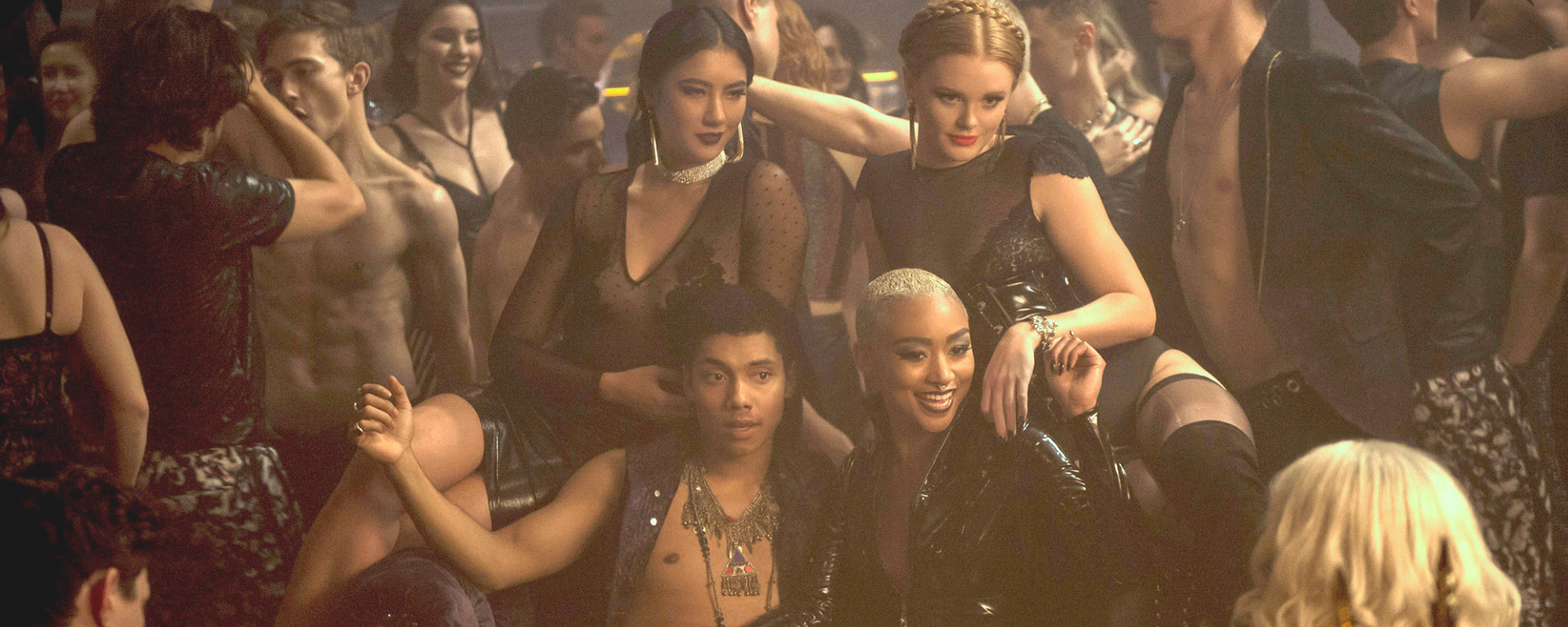Netflix’s Chilling Adventures of Sabrina is the creepy, off-beat response to the CW’s dark and grim Riverdale. Greendale, just across Sweetwater River from Riverdale, like the other setting in the Archie-verse, features a diverse cast of characters, including LGBT characters. Notably, Chilling Adventures features Theo and Ambrose, two characters on the LGBT spectrum. The show could easily use its themes of evil to damn these characters, but instead it lets the characters explore and celebrate their gender and sexuality.
Ambrose and the Ability to Exist Without Prejudice
https://tenor.com/embed.jsAmbrose is one of the most fascinating characters on the show. A disgraced witch placed on house arrest for attempting to blow up the Vatican, Ambrose spends a good deal of Part One (aka season 1) on house arrest. The rest of the show is spent dealing with his personal demons and redemption. And, of course, Ambrose provides comedic relief and acts as an additional mentor to Sabrina.

Through Ambrose, the audience is able to see a world where being on the LGBT spectrum isn’t cause for persecution. Ambrose is openly pansexual and does not care to hide this, nor does he need to. The witches in the show accept him. While he’s judged for his past actions and his relationships are used against him, his sexuality is left alone. The show carefully avoids presenting this as Satanic or hedonistic, however. The hedonism on the show, like with the Lupercalia, focuses around the consent and comfort of the characters. While, unlike in the mortal part of Greendale, the witches are openly accepting of LGBT characters, it is important that all of the witches accept everyone’s gender and sexuality.
https://tenor.com/embed.jsThe show can easily be accused of making evil look cool, but it’s important to note that the characters that are relatable and good and not just the ones who are merely sympathetic or cool present the lessons to guide the audience. Zelda and Hilda are great examples of this. Though Zelda’s morality is, at times, questionable, she’s still a character that the audience can relate to and her loyalty to her family, all of whom are arguably good, redeems the character. The sisters’ unquestioning acceptance of Ambrose while questioning the more overtly evil elements of witchcraft makes this acceptance work.
Theo and Overcoming Prejudice
https://tenor.com/embed.jsIn the mortal part of Greendale, Theo does not have it quite so easy. Theo struggles with his gender identity throughout the series. At first, he questions his gender and errs towards masculine gender performance. As the series progresses, he experiences euphoria when referred to using male pronouns and comes out as trans.
While this may be accepted at The Academy of Unseen Arts, Theo’s journey at Baxter High is much rougher. While Miss Wardwell/Madam Satan, Harvey, and Ros advocate for Theo, he still faces harassment from the other students and faculty. His tryouts for the basketball team are a particular dark and difficult time for Theo, and his personal journey deals with gender dysphoria and euphoria. He imagines himself with a different body before realizing that he’s always had a male body.
Theo is not without anger about his situation. He veers towards darkness while seeking revenge for his harassment, and he takes great risks in doing so. However, Theo learns how to live with his trauma without simply forgetting. He leans on his friends for support, particularly Harvey, and he finds his own personal strength.
Chilling Adventures and Queerness

Even though the show is set in a magical world with witches and mandrakes, Chilling Adventures connects so much with its fans because of how well the fantastic and the real blend together. Sabrina and her friends and family feel like real people–though sometimes real people with magical abilities or biblical origins. Part of making the show feel real is exploring these issues. While characters like Pi McDonald from the animated series are sometimes in fanon considered to be on the LGBT spectrum, having characters that are in canon part of the LGBT community provides positive representation for LGBT fans and allies.
Can’t get enough of our television-centric articles? See more from our TV section.
Featured image credit: Netflix

